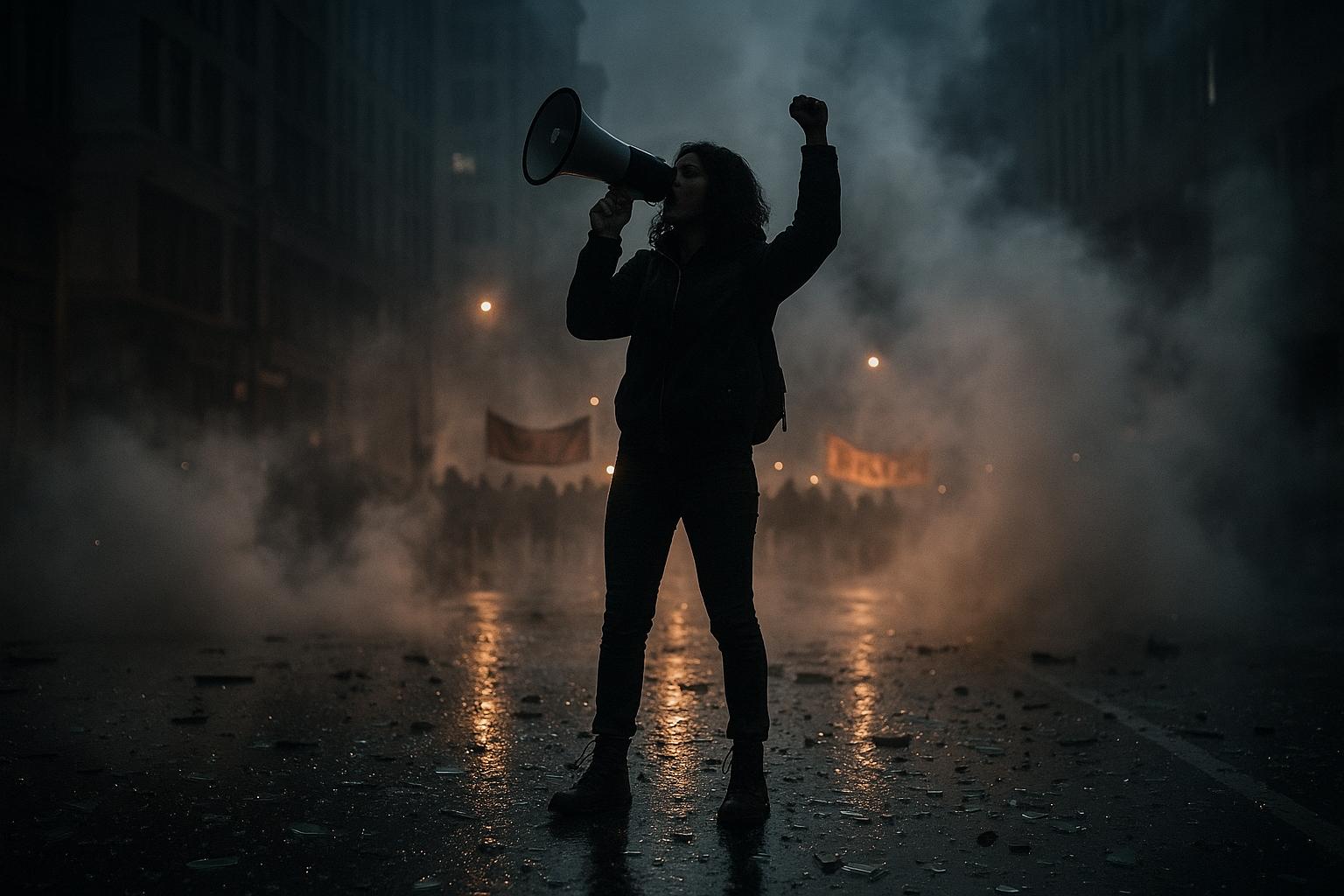For nearly four decades, Nick Lowles has dedicated his life to countering the far right in Britain. Beginning in the 1980s with the anti-fascist magazine Searchlight, Lowles later founded the campaigning organisation Hope Not Hate. This group has been pivotal in thwarting far-right violence, including bomb and murder plots, while actively working within communities to combat extremist propaganda. Lowles has intimately experienced the threats posed by these groups, enduring death threats and abuse as part of his commitment to pushing back against hate.
Lowles reflects on his upbringing during the 1970s when the National Front was gaining ground and recalls his efforts to infiltrate extremist organisations such as the British National Party (BNP) and Combat 18. He describes the current moment as exceptionally dangerous, especially in the aftermath of large-scale far-right demonstrations in London that have intensified tensions across the country. Despite this, he emphasises that the majority of Britons continue to support a multicultural society, underscoring the far right’s deliberate targeting of this ideal. Lowles highlights the shifting battleground: the peaceful coexistence of people from different faiths, religions, and backgrounds—once an uncontested aspect of British life—is now fiercely challenged by far-right narratives.
This tension was starkly illustrated on 13 September 2025, when over 110,000 protesters gathered in central London for one of the largest far-right demonstrations in modern UK history. Organised by far-right activist Tommy Robinson under the slogan “Unite the Kingdom,” the rally focused on opposition to illegal immigration and calls for greater free speech. The protest drew a charged atmosphere, with British, English, American, and Israeli flags prominently displayed, some participants wearing MAGA hats, and chants and placards expressing anti-immigration and anti-government sentiments. The event culminated in violent clashes with police, resulting in injuries and arrests, highlighting the deepening societal divisions over immigration and national identity.
The rally also sparked a notable counter-protest by about 5,000 people organised by groups such as Stand Up to Racism, reflecting the widespread resistance to the far right’s message. Community organisations like Inclusion London voiced strong condemnation of the far-right mobilisation, stressing solidarity with Muslims, Black people, Jewish communities, People of Colour, and LGBTQ+ individuals who feel particularly threatened by the rise in racist and fascist hate speech. They criticised the government for failing to address underlying economic issues that often fuel far-right sentiments, warning against scapegoating vulnerable communities.
In response to the unrest, UK Prime Minister Keir Starmer reaffirmed the right to peaceful protest while condemning the violence associated with the march. He stressed that Britain’s identity is built on tolerance, diversity, and mutual respect, and insisted that national symbols must not be co-opted to incite division or fear within society. Starmer’s intervention highlighted the challenge for political leadership to navigate between upholding democratic freedoms and confronting the disruptive and often dangerous actions of far-right groups.
Lowles’ experience and the recent surge in far-right activism underscore a grim reality: Britain faces a crucial moment in defending its multicultural ethos against increasingly aggressive attempts to undermine it. Yet, as Lowles points out, the resilience of those who believe in a society where diverse communities can live together peacefully remains a powerful counterforce. The far right’s growing visibility and capacity to mobilise are cause for vigilance, but they do not represent the totality of British public opinion, which still largely supports inclusivity and coexistence.
📌 Reference Map:
- Paragraph 1 – [1], [2]
- Paragraph 2 – [1], [2]
- Paragraph 3 – [3], [5], [7]
- Paragraph 4 – [6], [5]
- Paragraph 5 – [4]
- Paragraph 6 – [1], [2]
Source: Noah Wire Services
